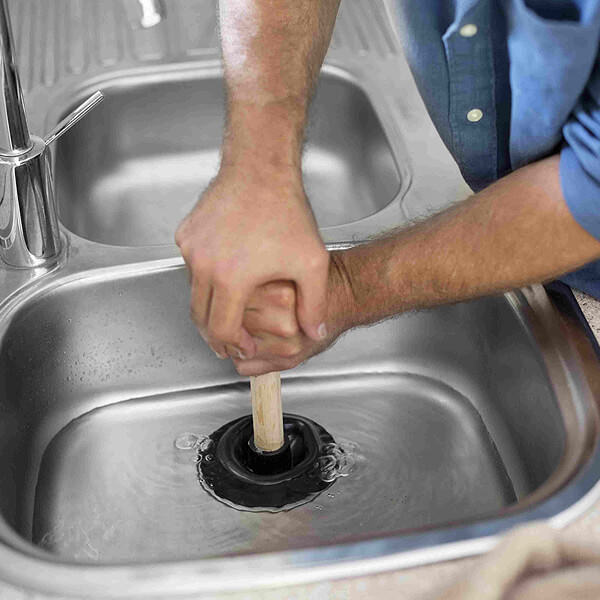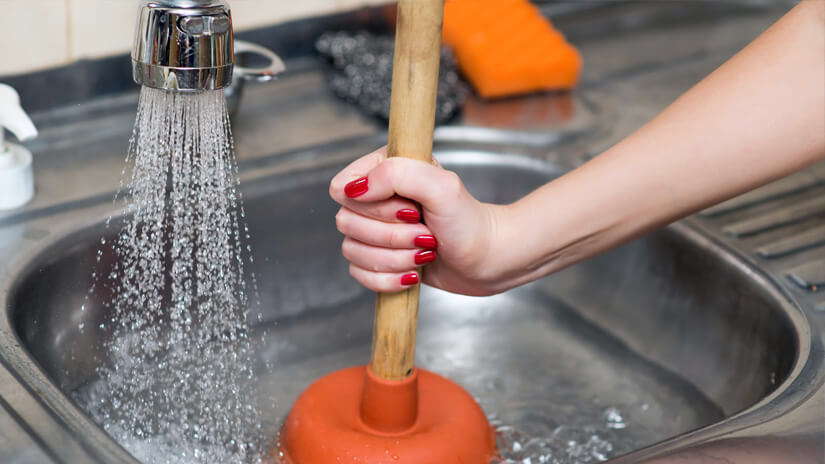Advice for Addressing a Blocked Drain Prior to Hiring Professional Assistance
Advice for Addressing a Blocked Drain Prior to Hiring Professional Assistance
Blog Article
The article author is making a number of good pointers regarding 8 Tips For Clearing A Blocked Drain overall in this great article underneath.

Intro
Managing an obstructed drainpipe can be a discouraging experience, disrupting day-to-day activities and potentially causing damage to your property. Nonetheless, before reaching out to plumbing specialists, there are actions you can take to address the problem yourself. In this guide, we'll check out do it yourself solutions and preventive measures to tackle an obstructed drainpipe efficiently.
Recognizing the Issue
The initial step in dealing with a blocked drainpipe is acknowledging the indicators. Slow-moving water drainage, gurgling audios, foul odors originating from drains pipes, or water backing up prevail indications of an obstructed drain. Determining these signs early can aid protect against better difficulties.
Common Causes of Blocked Drains
Recognizing the elements that add to drain clogs is necessary for reliable resolution. Usual culprits include hair, soap scum, oil, food particles, and foreign items like sanitary items or paper towels. Tree origins getting into underground pipelines can additionally trigger considerable blockages.
Do it yourself Solutions
For minor blockages, numerous DIY solutions can be reliable. Putting boiling thin down the drain can aid dissolve oil and debris. Baking soda and vinegar or a mix of salt and baking soft drink can act as natural cleansers. Making use of a plunger or plumbing serpent to dislodge blockages is an additional option.
Tools and Devices
Having the right tools available can make DIY drainpipe cleaning up extra efficient. A plunger is a flexible device for getting rid of blockages in sinks, commodes, and showers. A plumbing snake or auger can reach deeper blockages, while drain cleansing chemicals can be used cautiously for stubborn clogs.
Safety nets
To prevent future obstructions, adopting safety nets is important. Install drainpipe guards or strainers to capture hair and particles prior to they get in the pipes. Regularly flush drains pipes with hot water to liquify oil accumulation, and avoid taking care of oil or solid waste down the drain.
When to Call a Professional
While do it yourself solutions can solve minor blockages, certain indicators indicate the demand for specialist aid. Consistent clogs, foul odors despite cleaning up efforts, or several drains pipes backing up concurrently are warnings that call for professional treatment.
Picking the Right Pipes Service
When picking a plumbing solution, take into consideration factors such as experience, licensing, and client testimonials. Select a reliable plumbing with a track record of high quality workmanship and clear pricing methods.
Cost Factors to consider
The price of expert drain cleaning services can differ depending upon the extent of the blockage and the plumbing professional's prices. Request quotes from numerous service providers and ask about any kind of added fees to make certain transparency and prevent shocks.
Safety and security Precautions
When trying do it yourself drainpipe cleaning, focus on safety. Wear protective gloves and glasses to avoid contact with damaging chemicals or bacteria. Never blend different drainpipe cleansing items, as this can create hazardous fumes.
Situation Studies
Real-life examples illustrate the performance of DIY services and the significance of timely expert intervention in solving drainpipe clogs.
Conclusion
By complying with the pointers described in this overview, you can effectively deal with blocked drains pipes and protect against future pipes concerns. Whether choosing do it yourself services or looking for expert aid, timely activity is key to keeping a healthy pipes system and protecting the integrity of your home.
How to Clear a Clogged Drain Yourself (And When to Call In the Professionals)
What Can Clog a Drain
Dirt Skin flakes Hair Grease Soap scum Food Offset pipes Tree roots Small objects Mineral buildup DIY Tricks to Unclog a Drain
You can fix this! Once you have identified the source of the clog (or have a vague idea), you can try one or a combination of these fixes in order to clear your plumbing.
Wire Hanger or Snake
Untangle and clear out hair from a drainpipe with a homemade snake. Use a straightened-out wire hanger with a 90-degree angle hook to locate the clog and drag out any unwanted material.
Remember not to push the clog further down to where the wire hanger cannot reach! If you need to follow up with a plunger, give it a try. Your efforts might be more successful after it’s been wire-snaked.
If you want to get fancy and don’t have a wire hanger to spare, head to the store and pick up a hand-operated drain snake. You can get one for $10-$30. It may save you the hassle, and provide additional length to reach deep into the clogged pipe.
Plunger
A cup plunger has a suction cup attached to a wooden handle. The rubber creates a seal around the drain, and increases the pressure force of the plunger.
Plunge for 30-second increments to loosen the clog. This may need to be repeated over the course of 15-20 minutes. Once plunged, run the water to flush the remaining material out of the drain.
Remember– never use a plunger if you have used a chemical drain cleaner. These chemicals can splash up from the force of the plunger and cause serious injury or burns.
Boiling Water
Hot water can sometimes break up materials into a flushable amount. Dirt, grease, and soap buildup requires heat in order to unstick from surfaces.
Take your kitchen kettle and heat your water to a boil. Once it reaches a rolling boil, pour it directly down the drain into the blockage. Carefully follow with plunging, if necessary.
Don’t worry if this takes more than one try! It can often take multiple kettles and repeated plunging in order to clear a particularly stubborn clog.
Chemical Drain Cleaner
As a last resort, pick up a bottle of chemical drain cleaner. Drain-cleaning chemicals are potent, and not very good for the environment.
You may need to wear protective eyewear in gloves before handling your bottle of chemical drain cleaner. Follow the instructions printed on the bottle, and flush with water as soon as the instructions allow. Do not follow with plunging.
Baking Soda and Vinegar
As a safer alternative to chemical drain cleaner, baking soda and vinegar can create a chemical reaction that clears tough clogs.
Combine one cup of cleaning vinegar with one cup of boiling water, and set aside. Once you have done this, pour half a cup of baking soda down the drain. Give the baking thirty seconds to settle and cover a large portion of the problem drain.
Following the baking soda, pour down your vinegar and hot water solution. Once the vinegar and baking soda combine, the mixture will bubble and fix. Let this reaction fizzle in the drain for about an hour.
After an hour, follow with a kettle’s worth of hot water. The heat and liquid should flush out any remaining material.
When to Call a Plumber
If your DIY attempts haven’t cleared your clog drain, it’s time to call in a professional. It’s not worth losing access to your kitchen sink or high-traffic bathroom. A clog in a vital area can keep you from the things you’d rather be doing, and derail your routine.
Anytime a clog is causing water to spread is a time to call in a plumbing service. What starts out as a little bit of water can quickly grow into serious, expensive water damage.
Additionally, a serious clog can result in burst pipes or serious leaks. Make sure you know when to take it seriously!
https://myguysnow.com/how-to-clear-a-clogged-drain-yourself-and-when-to-call-in-the-professionals/

As a person who reads on , I assumed sharing that section was smart. For those who appreciated our blog post please don't forget to share it. I am grateful for being here. Please pay a visit to our site back soon.
Website Report this page